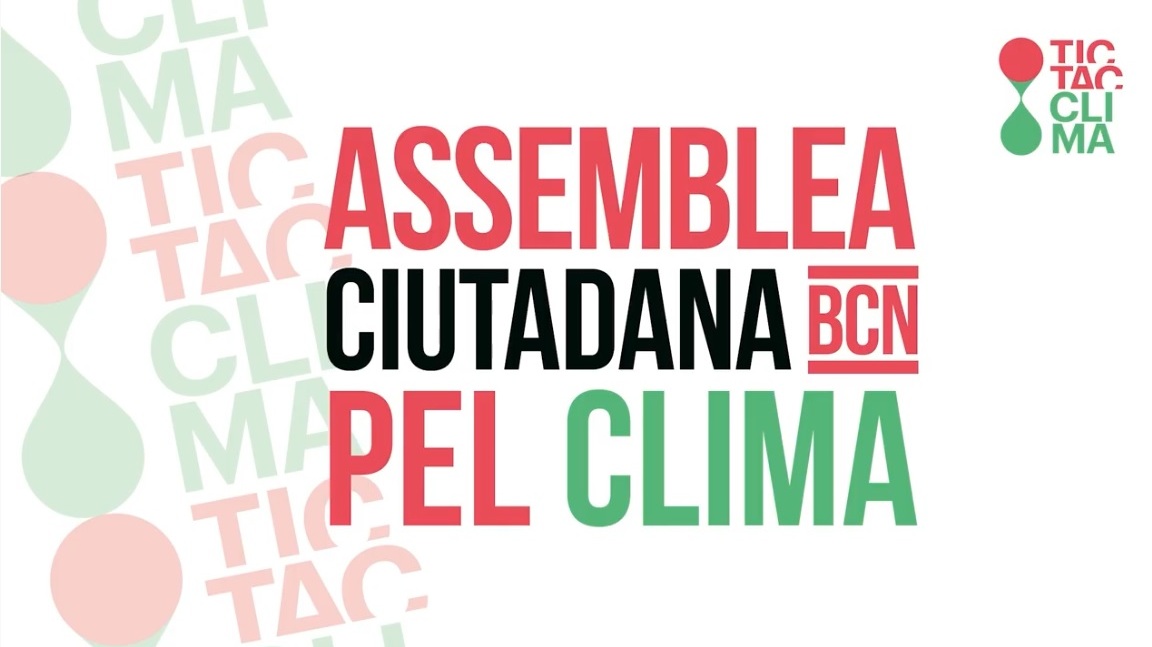Climate assembly with online participation

In Barcelona, Spain, a citizens' assembly collected ideas on how to solve the climate crisis from September 2022 to January 2023. 100 randomly selected people from 16 to 75 had the task of answering the question of what the city can do to address the climate crisis without increasing social inequalities.
The climate assembly addressed the climate emergency for the city of Barcelona as a whole, but the proposals developed could also relate to a neighbourhood or district. The content was about energy, mobility, air quality as well as the current consumption model and the resulting waste.
34 Recommendations
From September 2022 to January 2023, citizens' assembly members attended twelve meetings. The 34 assembly recommendations were passed to the City Council for consideration on 19 January 2023.
Proposals to promote the energy transition
- Reduce the energy consumption of the Barcelona city administration
- Promoting energy communities with the necessary regulations
- Minimising vital energy consumption and preventing excessive consumption
- Creation of a pool of companies committed to reducing energy consumption
- Recycling of inefficient household appliances at the end of their useful life
- Recycling of renewable energy installations and monitoring of their impact
- Regulation of rental prices depending on the energy efficiency of dwellings
Proposals for sustainable mobility
- Promoting car sharing
- Interchanges and shuttle buses on Barcelona's arterial roads
- Green axes for bicycles and pedestrians
- Greening of streets
- Making public transport cheaper
- Promoting working at home
- Expanding the bus network to make it more usable
- Converting the low emission zone with the setting of an annual kilometre limit
- Developing apps to coordinate sustainable mobility and improve personal carbon footprint
Proposals for responsible consumption
- Campaigns to raise awareness of responsible consumption
- More information to improve waste separation
- Creation of an app and a map to promote responsible consumption
- Reducing the cost of organic and local products
Organisations such as Extinction Rebellion and Greenpeace had criticised the citizens' assembly. They said it lacked a focus on the goal of reducing the city's greenhouse gas emissions by 50 per cent by 2030, and that communication about the assembly was judged to be poor. In addition, the city council had interfered too much in the work of the citizens' assembly.
Participation via Decidim Barcelona
In addition to the randomly selected 100 members, the city also involved its citizens in the discussion via the participation platform Decidim (Catalan for "We decide"). Ideas could be discussed and voted on the platform.
"Decidim also documents the entire process, making it transparent," explains Arnau Monterde, who helped develop the platform. It is a child of the indignant movement of May 2011, when young people all over Spain occupied public squares out of frustration over corruption and a lack of future prospects.
Many proposals implemented
Since 2016, the online platform has been firmly anchored in local politics in Barcelona. The city has committed itself by law to involving citizens in decisions once a certain budget or proportional representation has been reached. Around 90 percent of the suggestions have been implemented so far. Both the municipal funeral home and a free municipal information hotline are the result of citizens' suggestions.
The work of the citizens' assembly was accompanied by an advisory board. This was composed of representatives of the Citizens' Council for Sustainability, organisations involved in the fight against climate change, city council factions, representatives of the Department for Citizen Participation, the Department for Climate Emergency, the participating municipal departments and participants of the Citizens' Council itself.
Mini-Barcelona
The participants of the citizens' assembly had been randomly selected in April 2022. The assembly was supposed to represent a mini-Barcelona. The citizens' assembly was composed accordingly according to the criteria of gender, age, origin and residential district. For their participation, the assembly members received an expense allowance.
For the city council, the citizens' assembly was "a step forward" to "incorporate citizens' demands into measures to address the climate emergency". The assembly served to hear "first-hand the considerations and needs" of the people of Barcelona "to address the climate crisis".